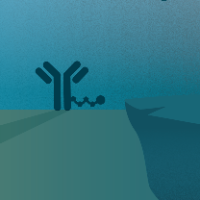The 4th World ADC Asia 2025 Summit
Bioconjugation Insights 2025; 1(2), 57–58
DOI: 10.18609/bci.2025.011
This event summary, brought to you by Bioconjugation Insights and the 4th World ADC Asia Summit, provides you with the key speakers and presentations from this year’s event. Highlighting the latest in discovery, development, and manufacturing, this overview captures the most impactful sessions, innovations, and expert insights shaping the future of ADCs.

Discovery, preclinical and clinical development, and CMC
The 4th World ADC Asia 2025 Summit, held on June 10–12, 2025, featured three specialized content tracks, Discovery, Preclinical and Clinical Development, and CMC, tailored to professionals across the ADC development spectrum. The Development Track showcased novel targets and antibody engineering, such as Shu-Ichi Hashimoto’s work on the ADLib KI-AMP system, and Heidi Wangs session on engineering bispecific ADCs with broader therapeutic indices. The Preclinical and Clinical Development Track highlighted translational models and clinical strategies, featuring insights from Nam-Gu Her on novel ADC preclinical efficacy and safety evaluation, as well as an update from Wenbin Lu on Dato-DXd’s pivotal trial data. In the CMC Track, experts such as Alain Beck and Pooja Desai addressed manufacturing and optimizing strategies for speed, consistency, and regulatory compliance.
Novel targets and innovative payloads
Innovations in targets and payloads took center stage, with speakers unveiling next-generation ADCs. Zou Bin presented on AT03-65, a highly selective anti-CLDN6 ADC utilizing the proprietary AxcynDOT™ payload platform. Similarly, Dongzhou J Liu explored ROR-1 as an emerging target, and Soo Min Lee discussed immune-modulating and metabolism-targeting payloads. Additionally, Daniel Calarese presented dual-payload ADCs that simultaneously deliver two distinct drugs to improve efficacy in resistant tumors.
Emerging biomarker strategies and current clinical data
This year’s summit also emphasized biomarker-driven development and clinical insights. Hadassah Sade introduced a TROP2 NMR biomarker for Dato-Dxd in NSCLC, developed using AI-based quantitative conscious scoring to improve outcome prediction. Martha Li presented a case study on Teliso-V, demonstrating how companion diagnostics can streamline regulatory approval. Clinical updates included Gilles Gallant presenting MYTX-011’s Phase I cMET-targeting results, and Vivian Wang on VBC104’s efficacy in lymphoma models resistant to existing therapies.
Case studies and discoveries
Finally, the 4th World ADC Asia 2025 Summit highlighted pioneering case studies and first-in-class discoveries. Paul Song and Shih-Hsien Chuang presented on dual-payload ADCs that enhance therapeutic efficacy and combat secondary tumor resistance. Sang Hyun Lee introduced degrader-antibody conjugates, combining protein degradation with targeted delivery. Obinna Ubah discussed ELN28, an inflammatory disease soloMER-drug conjugate. Amy Que and Llorente Bonaga explored novel conjugation technologies and regulatory strategies for scalable, late-stage ADC manufacturing.
Whether you are driving early discovery, progressing clinical pipelines, or scaling up manufacturing, the 4th World ADC Asia 2025 Summit is the gateway to linker-payload design, bispecific ADC formats, biomarker integration, and dual-payload strategies.
You can find out more about the 4th World ADC Asia 2025 Summit here.
Additionally, to find out what other bioconjugate events are upcoming, you can find our online Events Calendar here.
